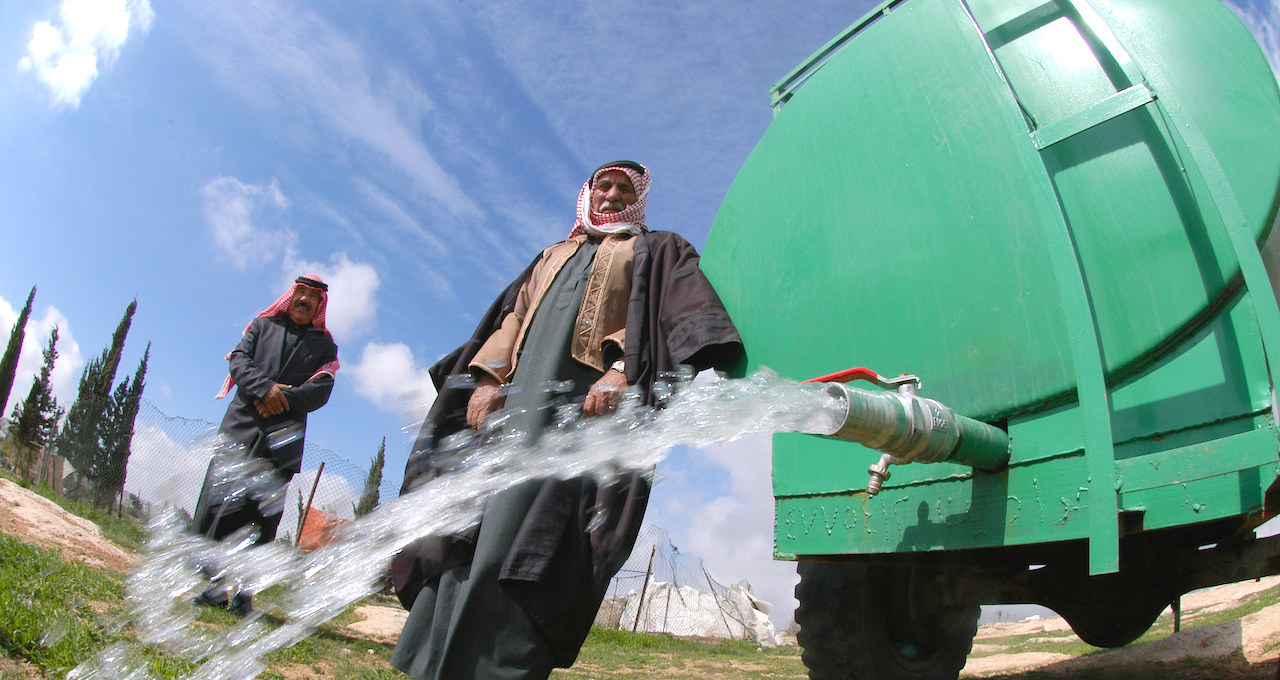
Jordan
Overview
Jordan is facing a growing water crisis. It is naturally arid, and forecasts suggest these conditions will worsen in the coming decades. While overall access rates to water and sanitation are high, population growth has further exacerbated an already stressed water sector, while the influx of Syrian refugees has placed an additional burden on the water supply. This is particularly true in the northern Governorates, which already suffer from strained water resources. Lastly, Jordan has limited renewable water resources, and groundwater for irrigation and drinking water is being drawn down at twice the rate of recharge for the aquifers, which furthers reduces the availability and quality of water.
To help Jordan achieve its water and sanitation objectives, and confront compounding water scarcity challenges, USAID builds sustainable water and wastewater infrastructure, improves water sector management and increases water conservation. Activities will reduce water losses, increase the treatment of wastewater, and improve the coverage and reliability of water and sanitation services. USAID and the Department of State are the main U.S. government actors in Jordan’s water sector, though the Millennium Challenge Corporation has provided significant support in the recent past, through its recently concluded project to expand the As-Samra Wastewater Treatment Plant and improve water networks in Zarqa.
Other U.S. government departments and agencies including U.S. Department of Agriculture’s U.S. Forest Service and the USGS within the U.S. Department of the Interior, also make regular contributions to support Jordan’s water sector, but do not maintain an in-country presence. The Department of State and USAID share responsibility for coordinating the activities of nonresident U.S. government agencies on the ground. USAID/Jordan provides advice on water policy, and coordinates water interventions among other international donors. The Department of State focuses on the political and policy aspects of Jordan’s water sector. This includes, for example, high level political support for regional projects like the Red Sea/Dead Sea Water Conveyance, as well as facilitating negotiations between Jordan, Israel, and the Palestinians regarding water issues. A number of donors are active in the water sector in Jordan, including the European Union, France, the UN Development Program (UNDP), and the World Bank. USAID collaborates with these partners to ensure investments are non-duplicative and complementary. Overall, these activities are estimated to provide more than two million Jordanians with sustainable access to safely managed water, or with water quality improvements, and help more than 180,000 people gain access to safely managed sanitation by 2020.
The Jordan Country Plan is costed based on prior year resources still available for programming, the FY 2017 estimated allocation of $58.0 million, and the FY 2018 President’s Budget Request of $60.0 million.


